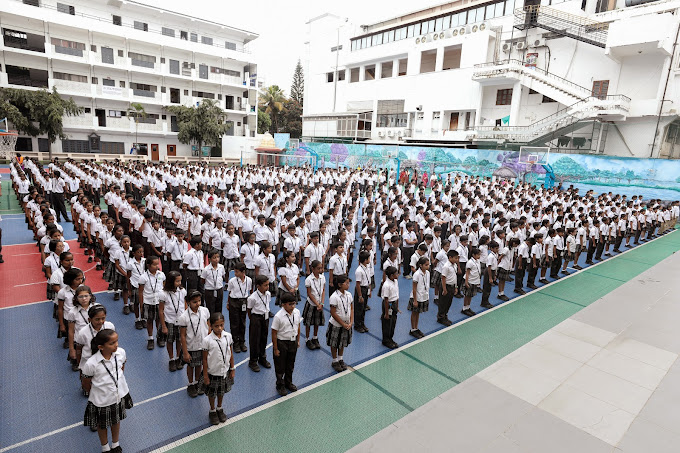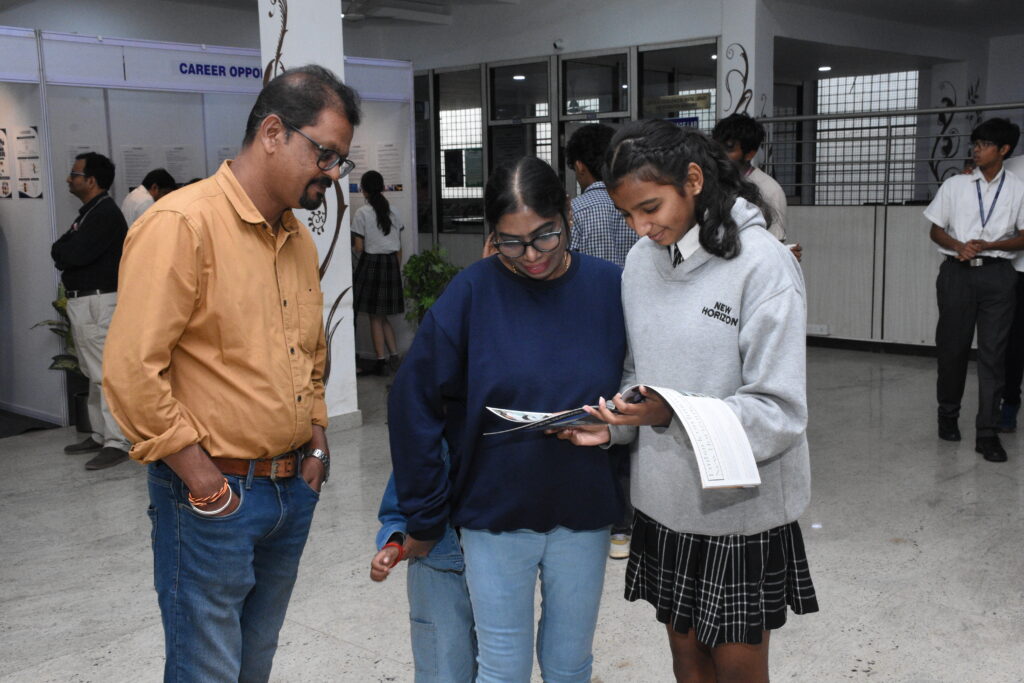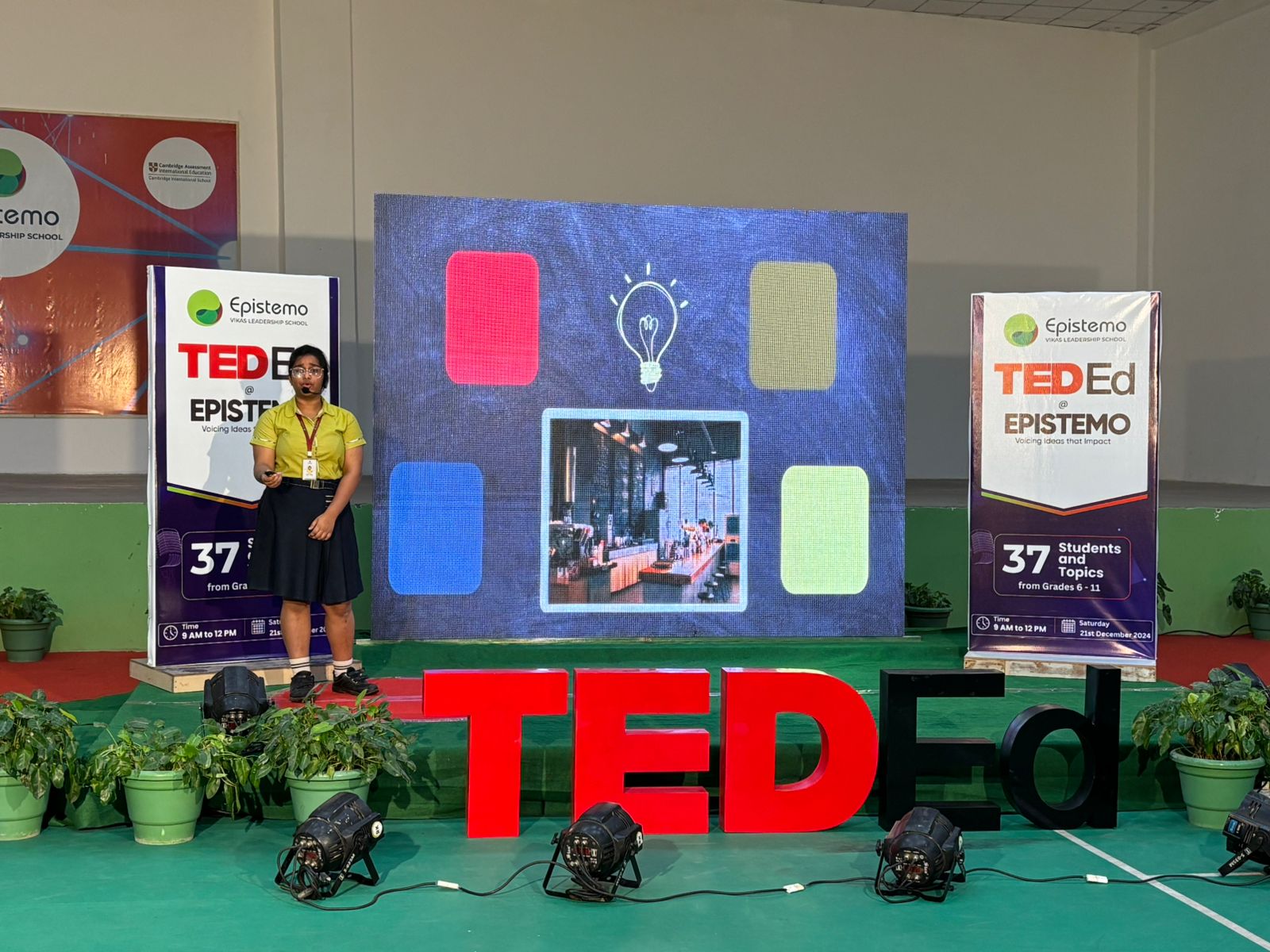At New Horizon Public School (NHPS), education goes beyond traditional classroom learning. The school places a strong emphasis on involving parents in their child’s educational journey, viewing them as co-educators. NHPS believes that the connection between the school and home plays a vital role in shaping a student’s success. This collaboration not only boosts academic growth but also nurtures emotional well-being, fostering holistic development.
The Importance of Parent Involvement in Education
Research consistently shows that when parents are involved in their child’s education, students perform better academically and socially. They develop stronger communication skills, exhibit greater confidence, and are more motivated. NHPS understands the value of this partnership and actively encourages parent engagement.
At NHPS, this partnership isn’t limited to periodic parent-teacher meetings. The school encourages parents to take part in various activities throughout the year. By participating in events, workshops, and co-curricular activities, parents can actively shape the learning experience, creating a more supportive and enriching environment for their children.
Creating a best Approach to Education at New Horizon Public School
NHPS’s educational philosophy is rooted in holistic development, which emphasizes not only academic achievement but also emotional, social, and physical growth. The school firmly believes that academic success is just one part of a child’s overall development. To ensure balanced growth, NHPS integrates co-curricular activities, mental health support, and leadership programs into its curriculum.
Programs like Gyan Mela and Udaan are designed to involve both parents and students in life skills development, leadership building, and entrepreneurial thinking. These programs provide parents the opportunity to work with teachers and students, reinforcing the idea that education is a shared responsibility. By actively participating in these programs, parents can contribute to the development of their child’s skills in business, leadership, and emotional resilience.

Effective Communication: Keeping Parents Informed
Effective communication between the school and parents is essential for a successful partnership. NHPS ensures that parents are well-informed about their child’s progress. Regular updates, progress reports, and parent-teacher meetings are just some of the ways the school maintains open lines of communication. However, NHPS goes beyond the basics to foster deeper engagement.
The school’s Parent Engagement Program allows parents to share their thoughts, feedback, and concerns with teachers. This open channel helps in creating an environment where both parties work together to support the child’s development. NHPS also organizes workshops to equip parents with the tools and knowledge they need to support their child at home. These workshops cover a wide range of topics, from study techniques to understanding emotional well-being, giving parents the confidence to guide their children effectively.
Building a Learning Environment at Home
As the world embraces digital learning, NHPS has also integrated online platforms like Edumerge into its curriculum. The school encourages parents to create a structured learning environment at home that complements the school’s efforts. Whether it’s through setting up a dedicated study space or helping children manage their screen time, parents play a crucial role in ensuring their children stay focused and motivated.
The hybrid learning model also presents an opportunity for parents to directly engage with the learning process. New Horizon Public School use of Edumerge and other digital tools enables students to access educational content and assignments at home. Parents are encouraged to monitor this progress and support their children in completing assignments, reinforcing the value of education outside school hours.
Support for Emotional Well-Being at New Horizon Public School
At NHPS, emotional wellness is as important as academic success. The school recognizes that students face emotional challenges such as stress, anxiety, and peer pressure. NHPS provides various resources, such as counseling services and wellness programs, to help students manage these challenges.
However, emotional support shouldn’t end at the school gates. NHPS understands that parents are crucial to supporting their child’s emotional well-being. The school encourages parents to maintain an open dialogue with their children about their emotional health. By attending parent workshops focused on mental health and emotional wellness, parents can gain the tools they need to better support their child’s emotional needs.
Fostering Global Citizenship and Social Responsibility at New Horizon Public School
One of the cornerstones of New Horizon Public School curriculum is global citizenship. The school aims to instill values such as empathy, responsibility, and social consciousness in students. Parents are encouraged to share their global experiences, engage in discussions, and teach their children about social issues, both local and global.
Through NHPS’s community involvement initiatives, students are exposed to various social causes, from environmental sustainability to social justice. Parents’ involvement in these initiatives provides a practical understanding of these issues and fosters a sense of responsibility in their children. This collaboration ensures that students not only excel academically but also grow into responsible and empathetic global citizens.

Building Leadership Through Collaboration
At NHPS, leadership isn’t just about academic success; it’s about developing critical life skills. The school provides various leadership-building opportunities through programs such as Udaan, where students learn entrepreneurial skills and critical thinking. NHPS encourages parents to participate in these programs, further reinforcing the idea that leadership is a collective effort.
When parents collaborate with teachers, they contribute to shaping a child’s character and leadership abilities. By working together, both the school and parents ensure that students not only develop the skills needed for success in school but also for success in life. This partnership plays a crucial role in molding well-rounded individuals who are prepared to take on challenges and lead with confidence.
The Role of Parents in Shaping a Student’s Future
The role of parents as co-educators extends far beyond supporting homework and attending school events. Parents at NHPS actively shape the future of their children by being part of the learning process, helping to build a foundation for lifelong success. This collaboration ensures that students receive the emotional, academic, and social support they need to thrive.
As NHPS’s Principal explains, “Education transforms most when school and home walk hand in hand. NHPS is building bridges, not borders, for our learners.” This collaborative approach is key to ensuring that students not only succeed in their academic journey but also develop the necessary skills and values to excel in life.
Conclusion
New Horizon Public School approach to engaging parents as co-educators sets it apart as a leader in holistic education. By fostering strong partnerships between the school and parents, NHPS creates an environment where students can thrive academically, emotionally, and socially. This collaborative effort ensures that children are equipped with the skills, values, and confidence they need to succeed in school and beyond.
As NHPS continues to innovate and adapt to the changing educational landscape, its focus on parent involvement remains central to its mission of providing quality education. Together, school and parents are shaping the leaders of tomorrow, ensuring that every child receives the support they need to succeed.





